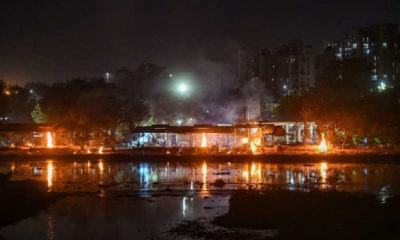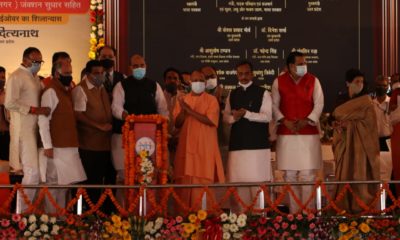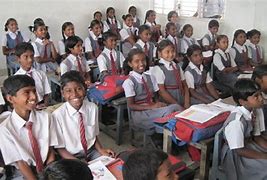National
Rice prices may reach a ‘boiling point’: Assocham

New Delhi: With India experiencing spiralling pulse-prices, Assocham on Sunday called for close monitoring of food prices, warning that rice prices may soon reach “boiling point” with stocks falling fast as a fallout of deficient monsoon and drop in output.
“Prices of rice may shoot up to reach a boiling point in the coming months as the stocks of the key staple cereal are depleting fast, owing to deficient rains and fall in output,” Associated Chambers of Commerce and Industry of India (Assocham) said in a statement here.
“After pulses, onion and some edible oils like mustard oil, rice may cause pain-in-stomach of the consumers if timely adequate safeguards are not taken,” Assocham’s latest study said.
The industry chamber said though the government estimates kharif rice production at 90.61 million tonnes (MT), the target is unlikely to be achieved owing to severe deficit rains in Punjab, Haryana, Uttar Pradesh, Bihar, Maharashtra and Karnataka “and the best that could be achieved is 89 MT”.
“The actual production may be around 103 MT during 2015-16. On the stock front, rice stocks have been steadily declining in the past three years,” the study reported.
“As against the stocks of 24.59 MT in 2012, only 13.89 MT (plus unlimited paddy 3.61 MT) are in stock as of today,” it added.
The study titled “Impact of weak/deficient monsoon on agricultural production and prices” said: “Increasing export outgo on account of PDS (Public Distribution System) and other welfare schemes will continue to weigh on availability in the open market”.
“Unless government is able to handle the situation prudently, depleting stocks will soon reflect on the open market prices.”
It said the deficient monsoon this year is likely to slow down the economy considerably and accentuate inflationary pressure coupled with shortages of essential food items across the country.
“A recurring monsoon failure might push the country into a tight corner in respect of rice, sugar, etc.,” it said.
Assocham suggested that Direct Seeded Rice (DSR) should be encouraged to conserve water.
“Presently, less than 10 percent of paddy production is under DSR due to limitations in the availability of suitable equipment for DSR in clay soils. Urgent attention is needed in this regard to expand DSR acreage on war footing,” the chamber said.
“Given the drop in kharif 2015 foodgrain production at 252.68 MT for 2014-15, against a record 265 MT for 2013-14, it is highly doubtful if India could reach even 250 MT for 2015-16, which is ominous,” it added.
National
Foodman Vishal Singh Honored for Hunger Free World Mission in Bangkok

Lucknow: Vishal Singh, a renowned social worker from Lucknow, also known as Foodman, has once again made India proud. He was honored by the Happy Hands Gloves Cooperative Limited Company in Korathai, Thailand, for his work with the Hunger Free World Mission.
The Hunger Free World Mission’s meeting was held in Korathai, Thailand, under Vishal Singh’s leadership. Representatives from several countries, including Mr. Raja Dwivedi (Managing Director of Happy Hands Gloves Limited), Thailand Coordinator Mr. Raja Mishra, and member Mr. Varun Singh, attended the event.

Under Vishal Singh’s leadership, the attendees took a pledge to work together toward creating a hunger-free world.
Speaking on the occasion, Vishal Singh explained that the main goal of the Hunger Free World Mission is social participation. He said the mission is not just about feeding people but also about meeting other basic needs of those who are struggling. The mission focuses on helping families of terminally ill patients in hospitals by providing food and shelter. It also works to fulfill essential needs like education, jobs, and care for the elderly.
For the last 16 years, the Vijay Sri Foundation has been providing free services, benefiting thousands of people. Vishal Singh highlighted that the mission aims to gain global recognition like other organizations such as WHO, WWF, and Red Cross, which work for social causes.
During this meeting, Vishal Singh was appointed as the Chairman of the Hunger Free World Mission by representatives from various countries. They also discussed holding regular meetings in different countries to push the mission forward.
Business tycoon Dr. Abhishek Verma has also supported this humanitarian mission, vowing to promote the idea of “Seva Parmo Dharma” (Service is the highest duty) worldwide. Vishal Singh praised him, stating that people like Dr .Abhishek Verma inspire others to work for the betterment of society.
Recently, Romania’s Ambassador, Mr . Daniela Sezonov Ţane, invited Vishal Singh to the Romanian Embassy in Delhi, where they discussed the mission in detail. Impressed by his humanitarian work, she honored Vishal Singh and invited him to Romania to take the mission forward .
Food man Vishal Singh has been serving the people of India for the past 16 years. Through the Vijay Sri Foundation, he provides free meals to cancer patients & their families ,shelter, and education for women & children along with running free old-age homes in Lucknow.
In addition to his humanitarian work, Vishal Singh also addresses issues like crime and corruption through his role as Chairman of Seva Path Media and Managing Director of Vijay Sri Foundation.

During the COVID-19 pandemic, Vishal Singh and his team worked tirelessly to provide food and help to the needy, including starving children, elderly citizens, and pregnant women. Despite contracting the virus himself, he continued to assist others after his recovery. He even created a life-saving oxygen regulator using household items, which was praised by doctors both in India and abroad.
In his address at the meeting, Vishal Singh spoke about his mission to create a hunger-free world. He pointed out that India’s large population, along with issues like unemployment and poverty, has caused the country to fall on the Hunger Index. He urged people to contribute just one handful of grains daily to help create a hunger-free world.
He concluded by saying that through social participation, we can empower the people around us, meet their basic needs, and work together to build a stronger, more prosperous, and developed society.























